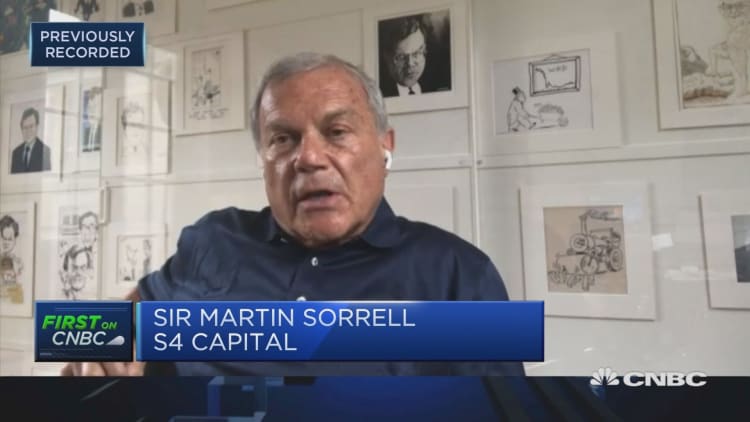Facebook U.K. boss Steve Hatch said Tuesday "when there's hate in the world there will also be hate on Facebook" as companies continue to boycott the platform due to ongoing hate speech concerns.
Patagonia, Ford, Adidas, HP, Coca-Cola, Unilever and Starbucks are just some of the companies that have joined the Stop Hate for Profit campaign and pulled their advertising from Facebook. The campaign argues that Facebook isn't doing enough to remove divisive, racist and hateful content.
Hatch, who is also Facebook's vice president of Northern Europe as well as the director for U.K. & Ireland, said the company is doing all it can to tackle hate speech on its platform.
"We have been working in this area for many years and we're actually investing millions in teams and systems to improve," he told BBC Radio 4's "Today" show.
"If we look at particularly the area of hate speech ... our systems now detect and remove 90% automatically. Now that's not perfect but we do know that's up from 23% a couple of years ago."
However on June 4, the number one post on Facebook was reportedly a video claiming that George Floyd, an unarmed Black man who was killed by police, was a "horrible human being" and that "racially motivated police brutality is a myth." The video received 24 million views in 19 hours.
White House staffer Ben Rhodes said on Twitter in early June: "Facebook profits off of an algorithm that mainlines hate. The worse it gets for us, the better it is for them. Their business model is the destruction of social cohesion."
Hatch said he "couldn't disagree more" before going on to add "there is no profit to be had in content that is hateful."
"There are 3 billion people around the world that use our platforms ... tens of billions of messages and posts are exchanged," said Hatch. "Now of course there is a small minority of those that are hateful and that's because as much as we do our very best — and there's always more that we can do and we will do — but when there's hate in the world there will also be hate on Facebook."
Despite the admission, Hatch added there is "no tolerance on our platform for hate speech."

Earlier this month, Joanna Hoffman, the former right-hand woman of Steve Jobs, criticized the leadership at Facebook for not being accountable for some of the harmful effects the social media platform has had on society.
While Hoffman said she had "enormous respect" for what Facebook had achieved, she suggested certain aspects of the social media giant were "destroying the very fabric of democracy, destroying the very fabric of human relationships and peddling in an addictive drug called anger."
Paul Barrett, deputy director of New York University's Stern Center for Business and Human Rights, told CNBC's "Squawk Box Europe" on Tuesday that Facebook's hate speech problem is a result of its scale. He said even if Facebook has the best artificial intelligence systems, the company still won't catch everything.
"I think we're in for a long season of misinformation, hate speech and other nasty stuff online," he said.
Facebook launched a new advertising campaign of its own on Tuesday, which is designed to help people spot fake news online and decide what to trust. The ads, which will roll out next month, will encourage people to ask three questions about what they see online: Where's it from? What's missing? How did you feel?
"Systems aren't the only answer," said Hatch. "It's a question of combining the forces that Facebook has with the community on Facebook itself and that's why we're launching this campaign. If you're unsure then don't share."
—CNBC's Vicky McKeever contributed to this article.

